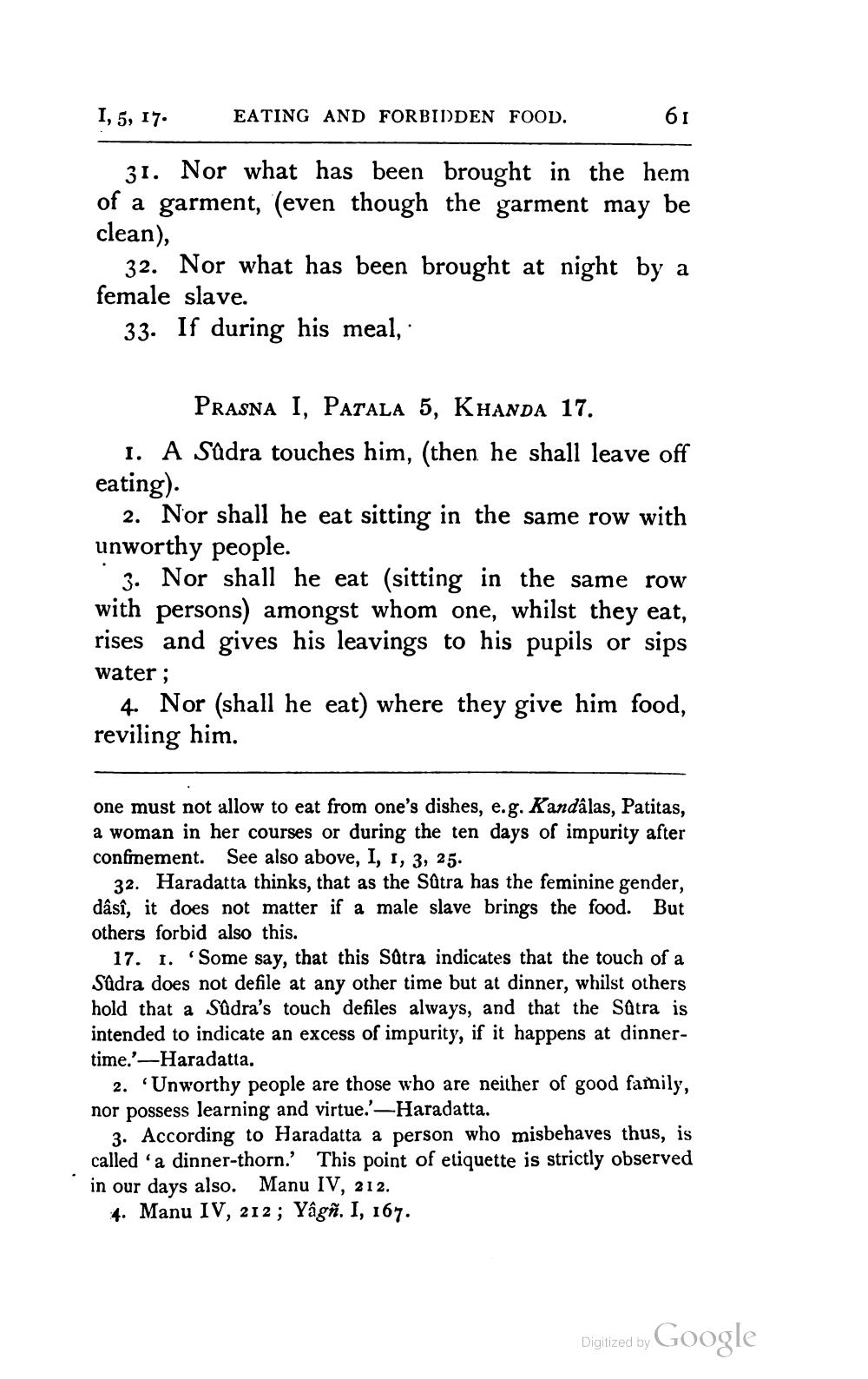________________
1, 5, 17.
EATING AND FORBINDEN FOOD.
61
31. Nor what has been brought in the hem of a garment, (even though the garment may be clean),
32. Nor what has been brought at night by a female slave.
33. If during his meal, :
PRASNA I, Patala 5, Khanda 17. 1. A Sudra touches him, (then he shall leave off eating).
2. Nor shall he eat sitting in the same row with unworthy people.
3. Nor shall he eat (sitting in the same row with persons) amongst whom one, whilst they eat, rises and gives his leavings to his pupils or sips water;
4. Nor (shall he eat) where they give him food, reviling him.
one must not allow to eat from one's dishes, e.g. Kandalas, Patitas, a woman in her courses or during the ten days of impurity after confinement. See also above, I, 1, 3, 25.
32. Haradatta thinks, that as the Sätra has the feminine gender, dâsî, it does not matter if a male slave brings the food. But others forbid also this.
17. 1. 'Some say, that this Sätra indicates that the touch of a Sudra does not defile at any other time but at dinner, whilst others hold that a Sadra's touch defiles always, and that the Sätra is intended to indicate an excess of impurity, if it happens at dinnertime.'-Haradatta.
2. Unworthy people are those who are neither of good family, nor possess learning and virtue.'-Haradatta.
3. According to Haradatta a person who misbehaves thus, is called 'a dinner-thorn. This point of etiquette is strictly observed in our days also. Manu IV, 212.
4. Manu IV, 212; Yâgñ. I, 167.
Digitized by Google




